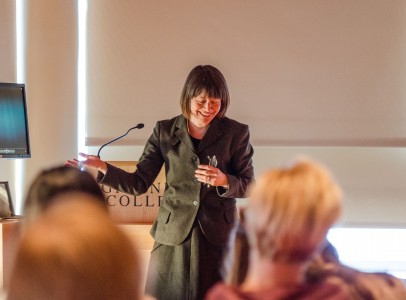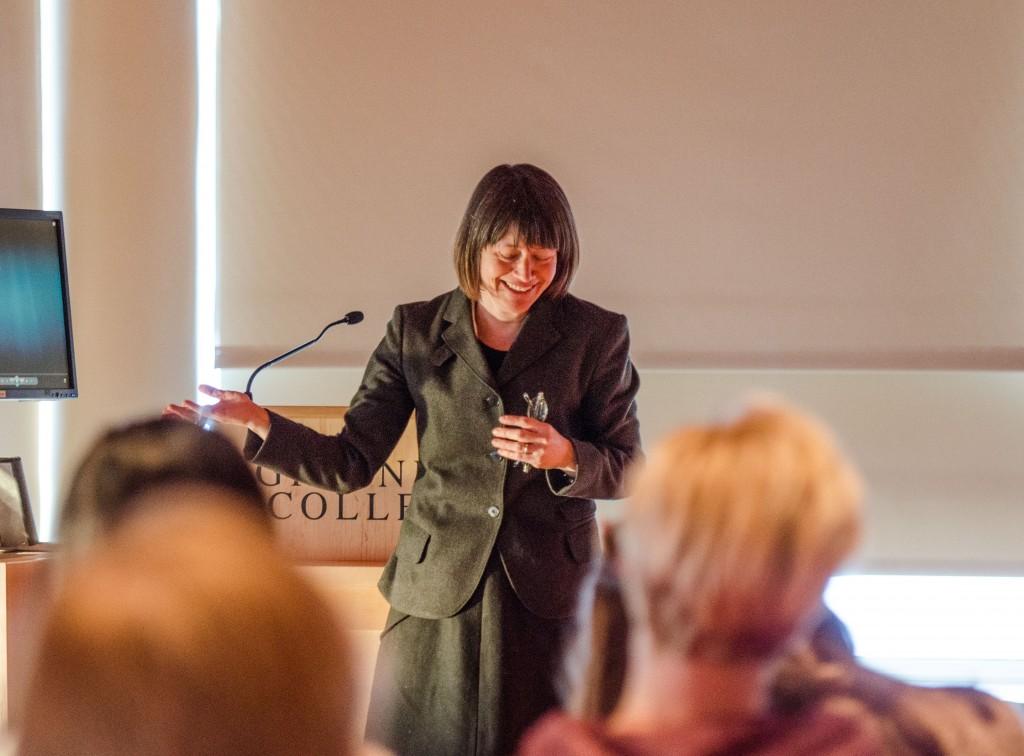This afternoon, Professor Patricia White of Swarthmore College will hold a dialogue on the role of feminism and queer scholarship in film studies in conjunction with Terri Geller, English. Their discussion will be the last in a series of campus events featuring White and centered around the roles of women in filmmaking and film criticism, including a talk yesterday, “In a World…: Contemporary Women Filmmakers in a Transnational Context,” in which White discussed the lack of attention devoted to women’s film as a unique genre by contemporary film journalists.
White addressed the global properties of film, as a medium that can transcend national boundaries, arguing that the work of female filmmakers is inherently political and should be treated as such. She sees film and media studies as uniquely relevant to the liberal arts as a method of thinking critically about the creation and reception of images.
“At best, film and media studies think about the production of images and the creative aspects of personal vision, but also politics,” White said. “Let’s think about new things, let’s think about things in different ways, let’s recombine things that we know. I think that interdisciplinarity and the liberal arts should pretty much be synonyms.”
In addition to being the Chair of the Film & Media Studies Department at Swarthmore College, White has published and edited extensively in the world of film studies texts. She also serves as a member on the board of Women Make Movies, an alternative distribution outlet, which provides access to many of the films taught in film studies courses at Grinnell.
Professor Geller feels that White’s experience at Swarthmore makes her uniquely suited to discuss film scholarship in the context of a liberal arts education with Grinnell students whose rural location can make it difficult to explore the film world.
“We don’t have much global cinema represented [in courses at Grinnell]. We have national cinemas, but we don’t have comparative approaches to transnational cinema, and so I thought she could fill a gap in students’ knowledge about film, especially because we don’t have access to film festivals or art houses,” Geller said. “There’s really a limit in the sorts of knowledge about film we have now, because streaming online only makes certain movies available and so people aren’t even acquainted with what would otherwise be independently distributed and produced movies.”
Students who attend today’s dialogue can expect a chance to ask questions and gain exposure to the methods and practices of film studies, an area Geller feels is often overlooked as a serious discipline. The discussion will explore film studies as an interdisciplinary field, in which political consciousness and cultural analyses overlap.
“We’re going to talk about why as feminists we turn to film and why we continue to turn to film to engage with feminist politics … In fact, a lot of our research … does involve what we’re going to teach and vice versa,” Geller said. “How do we bring issues of feminism, queer politics, racial politics, international and global [politics] into dialogue? And often that’s through film, because people enjoy film and want to talk about it. So we can raise all sorts of political questions through the venue of film, but also speak to the specificity of film as an art form.”




















































